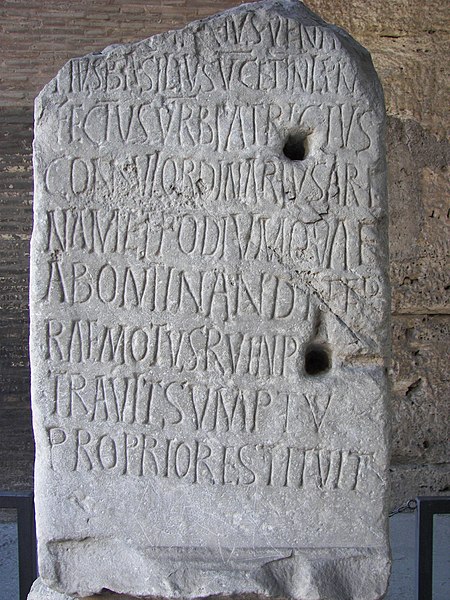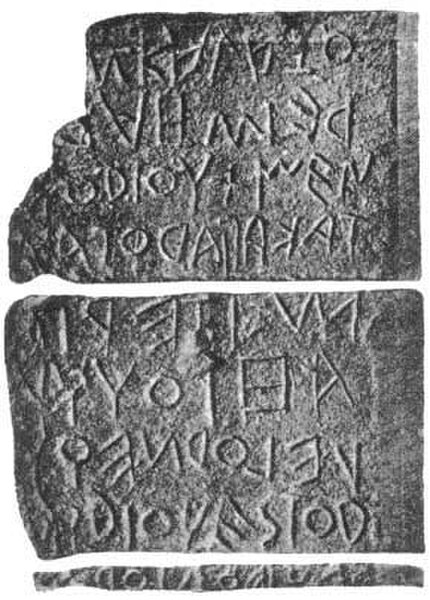E pluribus unum – Latin for "Out of many, one" – is a traditional motto of the United States, appearing on the Great Seal along with Annuit cœptis and Novus ordo seclorum which appear on the reverse of the Great Seal; its inclusion on the seal was suggested by Pierre Eugene du Simitiere and approved in an act of the Congress of the Confederation in 1782. While its status as national motto was for many years unofficial, E pluribus unum was still considered the de facto motto of the United States from its early history. Eventually, the U.S. Congress passed an act in 1956, adopting "In God We Trust" as the official motto.
Draped Bust half dollar (reverse), 1807
Image: 1 Dime (United States)
Latin is a classical language belonging to the Italic branch of the Indo-European languages. Considered a dead language, Latin was originally spoken in Latium, the lower Tiber area around Rome. Through the expansion of the Roman Republic it became the dominant language in the Italian Peninsula and subsequently throughout the Roman Empire. Even after the fall of Western Rome, Latin remained the common language of international communication, science, scholarship and academia in Europe until well into the early 19th century, when regional vernaculars supplanted it in common academic and political usage—including its own descendants, the Romance languages. For most of the time it was used, it would be considered a dead language in the modern linguistic definition; that is, it lacked native speakers, despite being used extensively and actively.
Latin inscription on a stone inside the Colosseum in Rome, Italy
The Lapis Niger, probably the oldest extant Latin inscription, from Rome, c. 600 BC during the semi-legendary Roman Kingdom
The Latin Malmesbury Bible from 1407
The signs at Wallsend Metro station are in English and Latin, as a tribute to Wallsend's role as one of the outposts of the Roman Empire, as the eastern end of Hadrian's Wall (hence the name) at Segedunum.






